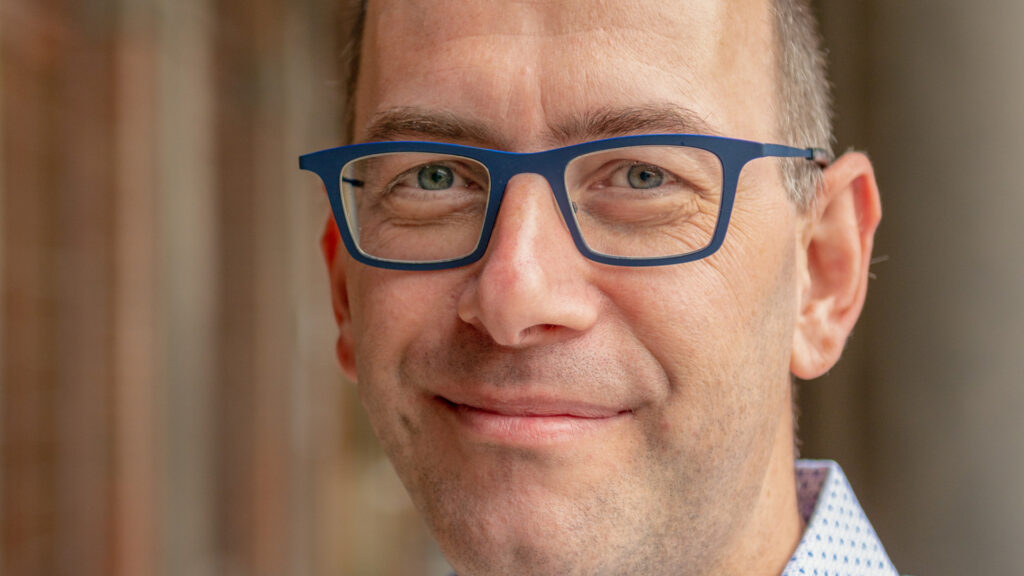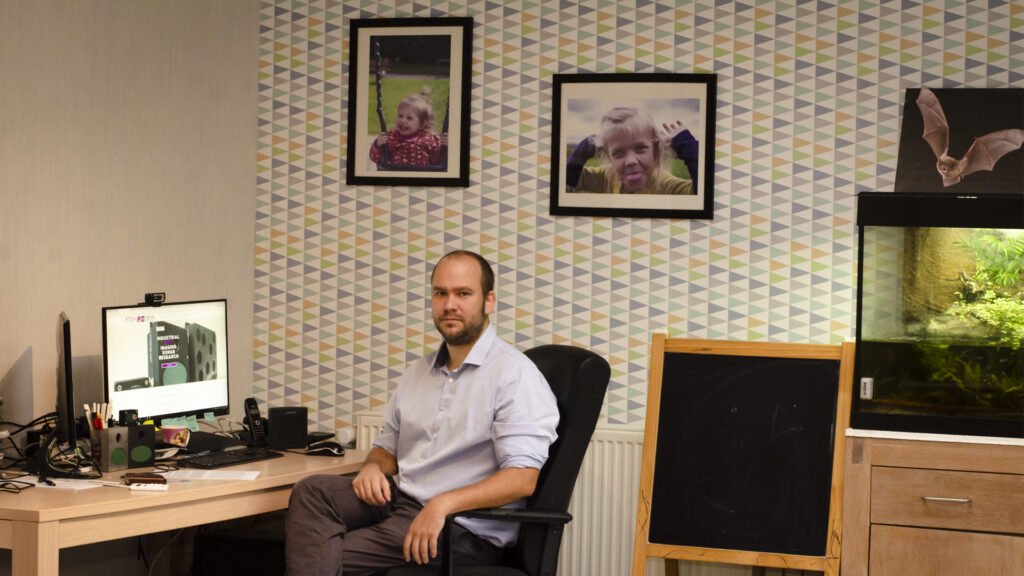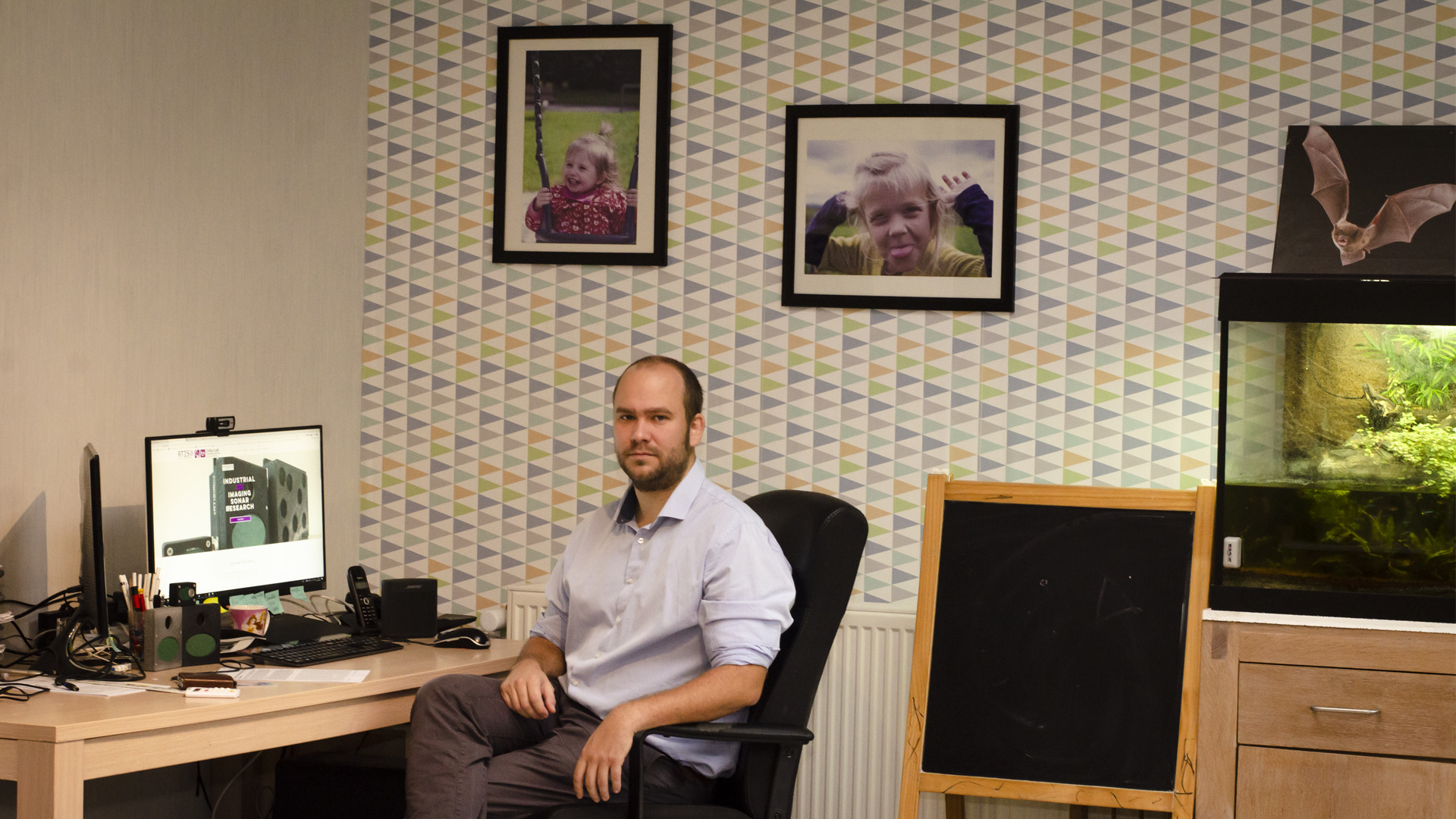Managing a team is not quite the same when your team members are sitting at their kitchen tables. What are the main challenges and pitfalls of this way of working? We asked Marjolijn De Clercq (HR Department), Professor Jan Steckel (CoSys-Lab) and Koen Pepermans (director of the Faculty of Social Sciences) about their approach.
We’ve been doing it for months already, and it’s likely to continue for a while: working as a team with almost no face-to-face contact. It’s definitely an extra challenge for managers. How do you keep the team spirit alive while striking a good balance between trust and control? Marjolijn De Clercq has some pointers.
How do you make sure the team stays connected?
Marjolijn De Clercq: “Since you don’t run into people anymore, you have to make sure to schedule enough opportunities to interact. A regular check-in, where all team members answer a specific question, is a good way to gauge how things are. You can ask how their days are going, which questions are keeping them busy, or what their goals are for this week. Keep it short, but make sure people really listen to one another. When it comes to informal contact, enjoying a virtual coffee break or going for a walk with a few colleagues is ideal. It’s also important to call your team members on a regular basis, even if there’s no urgent matter to discuss. Check how they’re doing and ask if there’s anything you can do to help. That’s much more effective than an email.”
Don’t just assume that everything will go smoothly. Make sure everyone has a clear set of tasks, and redefine objectives where necessary.
Marjolijn Declercq – HR Department
Does this situation require different communication?
Marjolijn De Clercq: “Clear communication is now more important than ever. Information no longer automatically reaches your colleagues, so you have to compensate for that: get people up to speed during a team meeting, call them, put them in CC more often… You also need to make sure everyone really gets the message. And be aware that written communication can come across differently than you intended, so make sure people literally see and hear each other regularly.”
What are some typical pitfalls?
Marjolijn De Clercq: “This new way of working poses very different challenges. Don’t just assume that everything will go smoothly. Make sure everyone has a clear set of tasks, and redefine objectives where necessary. Everyone needs to be on the same page. However, avoid becoming ‘the spider in the web’: not everything has to go through you. It’s normal to micromanage a little more at first, but after that, you have to be able to let go. Don’t forget to express your appreciation of people’s work on a regular basis, because when they’re working from home, people are more likely to feel that their efforts are going unnoticed. Last but not least, be kind to one another: this situation is challenging for everyone, but we can get through it together.”
“Accept that things can go wrong”
Koen Pepermans, director of the Faculty of Social Sciences, says the past few months have been very intense, but also a great period of mutual solidarity. ‘My advice for fellow team leaders? Don’t be too hard on your team during this time.’
The first week of the lockdown, Koen Pepermans sent out an email to his entire team with the heart-warming message that they would get through this together. “We had to react quickly. With face-to-face meetings replaced by online meetings, we compensated for the lack of social contact by organising a weekly virtual coffee break. Anyone who was available joined in. These breaks weren’t meant to be too serious: sometimes we would just watch funny videos together. We even had a special guest once, a former dean who now lives in New York.”
“After a few weeks, I started scheduling thirty-minute meetings with every team member. These one-to-one talks revealed that some people were having a hard time of it. We also noticed that some employees were working so hard to get everything done that they were at risk of neglecting themselves. So I made sure to tell them: give yourself some rest and remember to take some time off. This self-care was really necessary – including for myself.”

Do not disturb
“We also took everyone’s personal situation and preferences into account. Employees with young children, for example, could indicate ‘do not disturb’ times when they’d rather not be contacted. We discussed this during the virtual coffee breaks. After the lockdown, some people wanted to keep working from home. I allowed this whenever possible.”
“I was surprised by the team’s flexibility and solidarity. Even less tech-savvy people promptly made the switch and started arranging online meetings with students. There was also a great willingness to step in for one another: the roster for supervising exams was filled in more quickly than ever. In this sense, the COVID-19 crisis was a test we passed with flying colours. At the end of the lockdown, I went and slipped a bag of sweets and a little thank-you note into everyone’s letterbox.”
“My advice for fellow team leaders? Above all, don’t be too hard on your team and on one another. Of course, we have to keep aiming for high quality, but under these circumstances you have to accept that things can go wrong.”
“It’s all about trust”
Professor Jan Steckel of the Constrained Systems Laboratory (CoSys-Lab) and his team have been working from home since mid-March. How have they managed to remain productive and focused? Everything hinges on a good relationship of trust, he says. ‘I make a point of regularly checking in with my people to see how things are really going.’
Jan Steckel wasn’t really worried when he realised in March that his team would probably be working from home for months to come. “We’re pretty tech-minded and used to communicating remotely anyway. So I felt sure that my people would manage. Our weekly Monday meeting with the entire team is now held online, as is our ‘other’ meeting every Friday: instead of going out for a drink after work, we now get together in front of our computer screens, often with a cold beer. That’s how we keep up the team spirit.”
“Is working from home as productive as being at the office? Definitely not, especially back when schools were closed. That’s why I make a point of regularly checking in with each team member to see whether they’ve got everything under control. You can’t expect them to report that proactively. If – for whatever reason – someone’s had a less productive week, it can be very difficult for them to come out and say it. By showing that you understand and want to look for a solution together, you can maintain a relationship of trust. In the long term, this is a much more effective strategy than taking a hard line. And after a phone call to the customer, the deadline often turns out not to be as tight as we thought: after all, we’re all in this together.”

Taking your keyboard home
“It’s really all about trust: I trust every single one of my team members blindly. So I don’t make a fuss if someone takes their keyboard or measuring equipment home. It allows them to work comfortably from home. In the spring, I hired three new people. Two of them lived abroad, in Panama and Germany. Of course, I didn’t expect them to come to Antwerp, given the circumstances. So then you simply have to trust that they’ll do their jobs to the best of their abilities.”
“The great rapport among the members of our research group is one of the reasons why we have such a high output. In late March, we developed a system for listening to patients’ lungs remotely for the UZA intensive care unit in just three weeks. That was an intense period with very long working days. You can only pull that off with a team you trust completely.”


